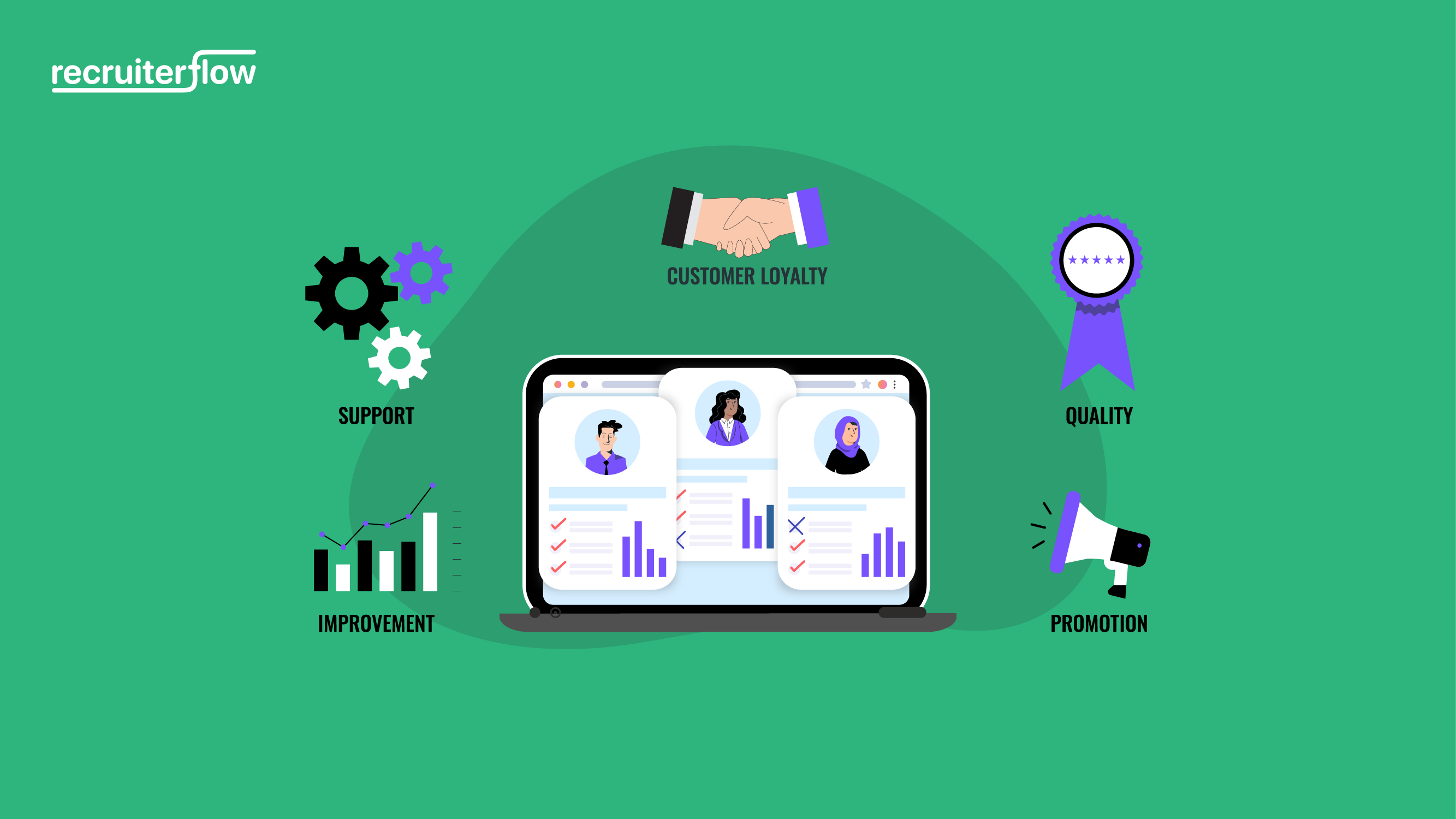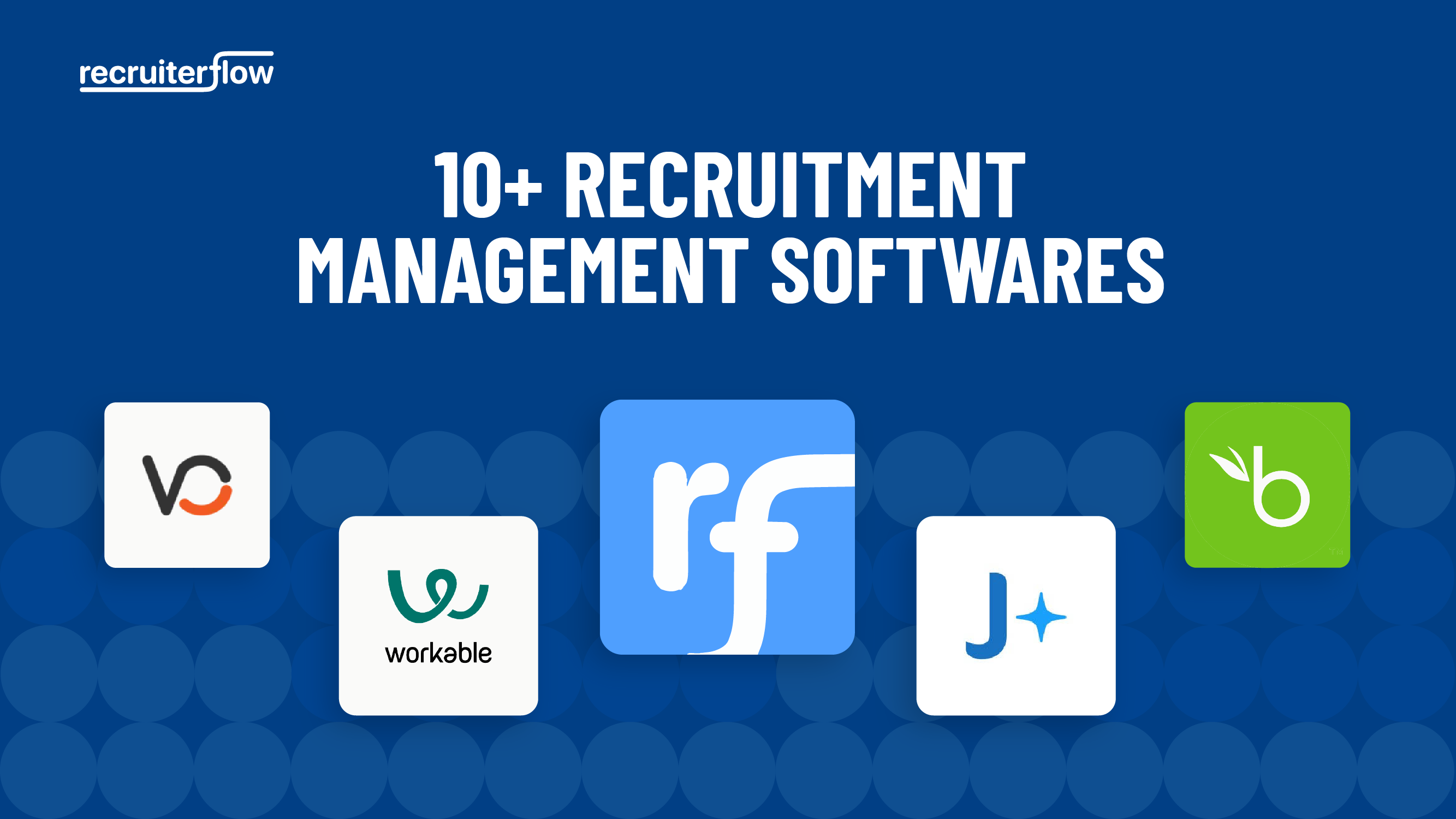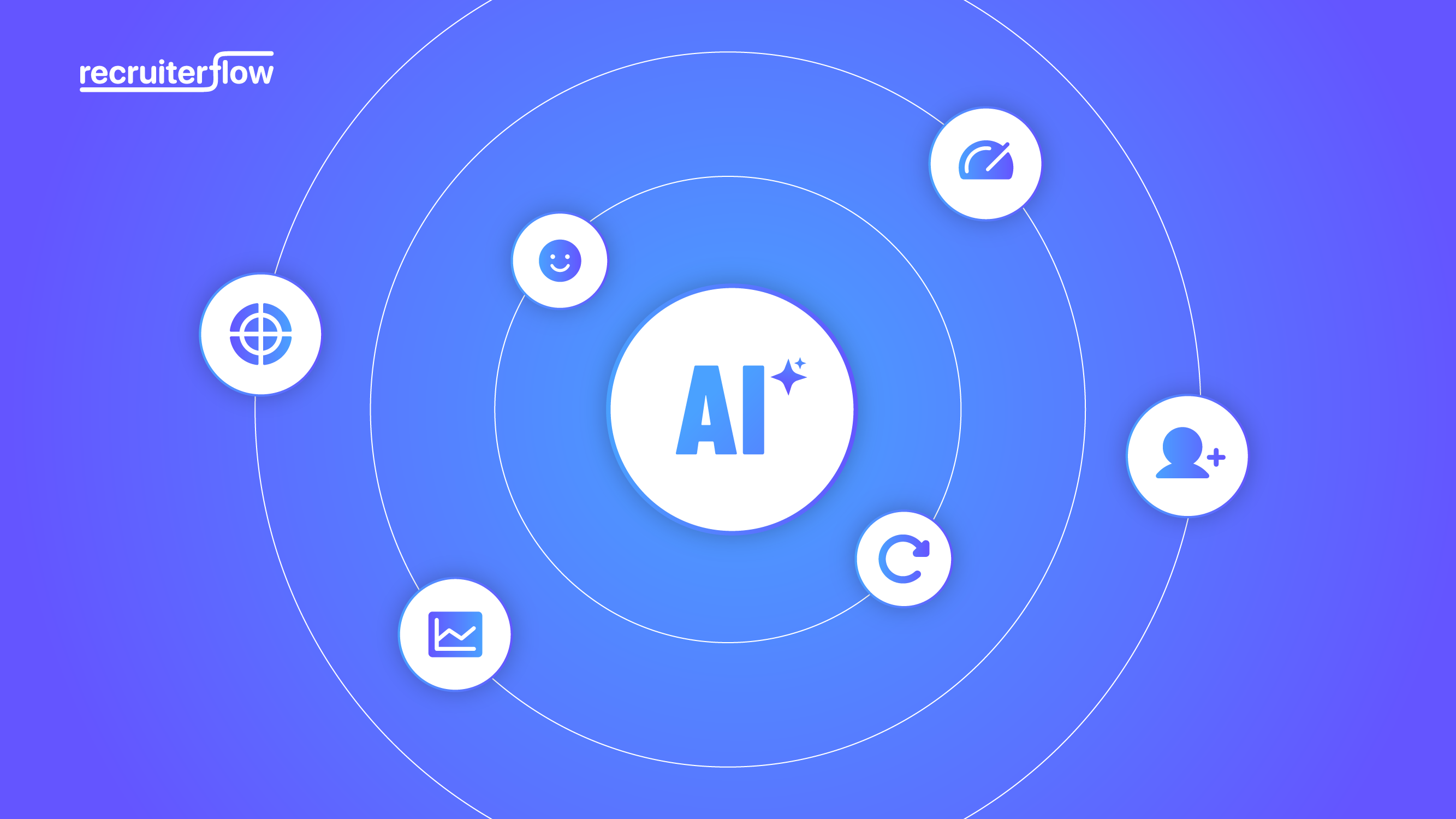
Recruitment Software Features

When we talk about recruitment software features, an aspect that is often overlooked is that there is no one software that is the best-of-breed at everything.
Each recruitment software serves a distinct purpose in the recruitment world. Some software might be the right fit for one-man recruitment agencies, others for small and medium-sized agencies.
To provide you with a better perspective on recruitment software features, we have listed down essential recruitment software and the features they must have
Must-have features in your Recruitment Software
Applicant Tracking Software
Applicant Tracking System (ATS) helps recruiters manage the hiring process. This software offers a diverse range of features, spanning from basic database functionalities to a comprehensive suite of tools designed to facilitate seamless candidate filtering, management, and analysis for businesses of all sizes.

Check out the features your ATS must have for a seamless hiring process –
AI-powered candidate matching
Your ATS should have the capability to utilize AI recruiting to analyze resumes and job descriptions and rank candidates based on their true potential, not just keywords.
Candidate Pipeline Management
Build and nurture your ideal candidate pool. Track progress and stay connected at every stage. ATS software streamlines the tracking of applicants through various stages of the hiring process, ensuring organized and effective candidate progression.
Resume parsing and formatting
Simplify your hiring process with advanced resume parsing and formatting. Your ATS should be able to automatically extract data from resumes and format it into a standardized template. It simplifies the review process by presenting candidate information in a uniform and easily readable manner.
Job board and social media integration
ATS must have integration with leading job boards and social media platforms. This ensures smooth job postings, saves time, and broadens the candidate search, improving the chances of finding suitable applicants.
Advanced Boolean search
Your ATS should offer sophisticated search capabilities using Boolean search, allowing recruiters to precisely filter candidates based on specific criteria and keywords.
Chrome extension
Modern ATS should have a Chrome extension feature to directly source candidates from various job boards and social sites. When operating across public or unsecured networks, recruiters can improve security by using browsers configured with reliable VPN protocols to ensure protected data transfer during sourcing.
Scorecards
The ability to create personalized scorecards is a valuable feature. An ATS should allow clients to evaluate candidates at different hiring stages using the specific criteria they want to assess. These scorecards can be attached as PDFs to the candidate’s record, helping in making collaborative and objective hiring decisions.
Career page building and management
Efficiently build and manage your career page. Your ATS must be able to create an attractive and informative DIY career page, helping you showcase your organization and engage potential candidates effectively.
To read about these features in detail, read our blog on Key Features of Applicant Tracking System
Recruitment CRM
A recruitment CRM helps recruiters to efficiently manage relationships with both candidates and clients.
Here are the key features your recruitment CRM software must have.
Analytics and Reporting
Effective reporting and in-depth analytics play a crucial role in the success of your recruitment business. A well-designed analytical recruiting dashboard is essential for monitoring productivity through recruiting metrics such as recruitment source, time-to-fill, and applicant-to-interview ratio.
Candidate and Client Profiling
Recruiting CRM with comprehensive profiling capabilities ensures a segmented database based on demographics and customized criteria.
Automation
Streamline your recruiting processes and enhance team productivity by opting for a CRM with robust automation capabilities. This includes automating lead generation, candidate nurturing, marketing, and sales processes.
Collaboration
Choose a CRM that facilitates seamless collaboration across various functions. Collaboration eliminates silos, integrating recruitment, sales, marketing, and customer service efforts. This ensures everyone is involved in the hiring process loop, enhancing engagement and client retention.
Compliance and Security
Recruitment CRM should maintain a comprehensive user activity audit trail, aiding in problem resolution and dast testing. Routine data backups are essential to safeguard organizational data, with role-based access ensuring only authorized personnel can access sensitive information.
Integration
CRM integrations streamline information flow between channels, enhancing organizational transparency and communication. This consolidated approach facilitates effective automation, promoting overall efficiency within the recruiting business.
Talent Pool Categorization
Opt for a CRM that allows for effective recruitment management through categorization. This involves segmenting and nurturing candidates based on demographics, enabling engagement and nurturing through targeted campaigns.
Email Sequences
Choose a CRM that offers robust email sequence management directly from the dashboard. This feature allows for targeted messaging, tracking customer engagement, and segmenting the database. Effectively managing email sequences is crucial for successful communication strategies in the recruitment business.
To learn more about these features in detail, read our blog on recruitment CRM features.
Video Interview Software
Video Interview Software is an indispensable tool for talent acquisition agencies. This software enables recruiters and hiring managers to conduct remote interviews with candidates, offering convenience and efficiency.
Key features include:
Scheduling Integration
Your video interviewing software should enable easy scheduling options that sync with calendars to avoid conflicts and ensure timely interviews.
Candidate Evaluation
Candidate evaluation is a must-have feature in your video interview software. It provides tools to assess candidates during or after the interview, including scoring systems or note-taking capabilities.
ATS Integration
Integration with Applicant Tracking Systems (ATS) is crucial for a seamless recruitment process. Your video interview software should be able to integrate with ATS platforms, allowing recruiters to easily access candidate information, review resumes, and sync interview data with the overall hiring workflow.
Varied Questions
A robust video interview software should support diverse question formats, including behavioral, situational, and technical questions. Additionally, the ability to incorporate multimedia elements such as case studies, images, or videos enhances the evaluation process by allowing recruiters to assess specific skills and scenarios effectively.
Customizable Branding
Video interview software must allow for customizable branding, including the ability to incorporate your company logo, colors, and any other relevant branding elements. This helps in enhancing the candidate experience and reinforces your organization’s identity throughout the interview process.
To know about the best video interview software in the market today, read our blog on Top Video Interview Software
Talent Assessment Software
Pre-employment talent assessment software is another crucial tool in the recruitment process, enabling recruiters to evaluate candidates’ skills, personality, and fit for the role and organization. It helps in making data-driven hiring decisions by providing objective measures of a candidate’s potential.
Holistic Assessment
Professional talent assessment software should allow recruiters to conduct various tests, with the option to customize them based on specific job requirements and company culture. These tests may cover cognitive ability, psychometrics, behavior, personality, and technical skills.
Seamless Integration
Your assessment software must provide options to easily integrate with ATS or recruitment CRM systems for a streamlined hiring process.
Mobile Accessibility
Mobile accessibility is crucial for on-the-go recruitment. Good talent assessment software enables seamless usability on mobile devices, enhancing flexibility and efficiency in candidate evaluation.
Also, check out our blog on the best recruiting apps.
Questions to ask yourself when selecting recruitment software
1. What are our biggest recruitment pain points?
2. What features are essential vs. nice-to-have?
3. Can it integrate with our existing tools?
4. Does it cater to our specific niche or industry?
5. How user-friendly is it for both recruiters and candidates?
6. What level of training and support does the vendor offer?
7. What are the pricing models and are they scalable?
8. What are the data security and privacy measures in place?
9. How does it leverage technology for efficiency and automation?
10. Can we test it before committing?
By carefully considering your agency’s unique needs and industry specifics, and asking key questions during software selection, you can pick a solution that fits your current needs and grows with you.
Recruitment



Sagrika Jain